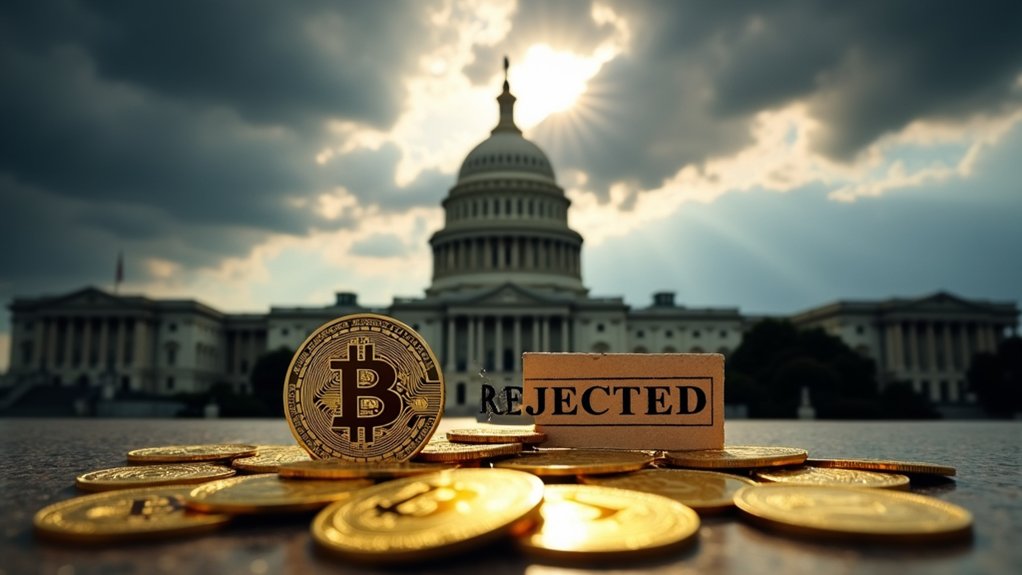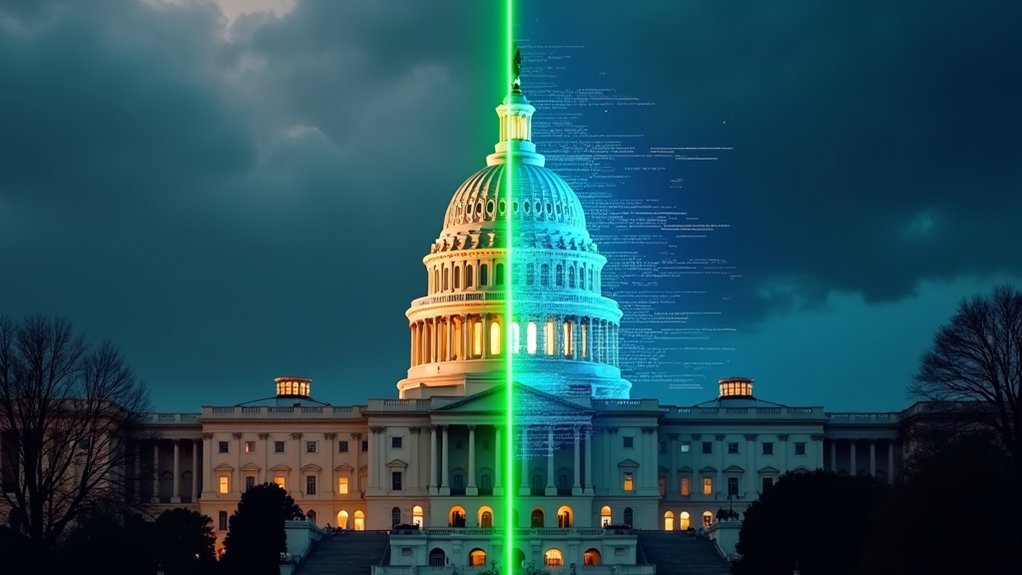In a rare display of bipartisan unity, Congress has crushed the Treasury Department’s controversial DeFi tax rule. The Senate voted 70-27 on March 4, 2025, followed by the House with a whopping 292-131 vote a week later. Yeah, you read that right—76 Democrats crossed party lines to join Republicans. Turns out politicians can agree on something after all.
Congress finally agrees on something: killing crypto regulations that never stood a chance.
The rule, proposed back in December 2024, would’ve forced decentralized finance platforms to report user transactions to the IRS starting in 2027. One tiny problem: DeFi platforms literally can’t comply. They don’t have centralized control of user data. The regulatory uncertainty threatened to undermine market confidence in decentralized applications. Talk about the government not understanding the technology it’s trying to regulate.
Crypto industry players couldn’t pop the champagne fast enough. The Blockchain Association, which had already sued to block the rule, celebrated alongside Coinbase and the DeFi Education Fund. They’re calling it a historic win for financial privacy and U.S. competitiveness in digital assets.
Not everyone’s thrilled. The Joint Committee on Taxation estimates the repeal will cost about $3.9 billion in lost tax revenue over the next decade. Critics worry this opens the door to more crypto tax evasion. Fair point.
The repeal still needs one more House vote due to budget rules, but that’s practically a formality at this point. Trump’s advisors are already recommending he sign it when it hits his desk. Once he does, the Treasury can’t just turn around and issue a similar rule again. Game over.
This vote signals a major shift in U.S. crypto policy under the Trump administration. The original regulations were expected to raise nearly $28 billion in tax revenue over a decade through increased compliance. The recent establishment of a Strategic Bitcoin Reserve by the U.S. Treasury further indicates the changing governmental approach to digital assets. It follows efforts to reverse SEC crypto rules and sets the stage for new, potentially more industry-friendly regulations. The crypto lobby’s growing influence in Washington is undeniable.
Congress has made itself clear: they want a say in how crypto gets regulated. And they just shouted down the IRS in spectacular fashion.





